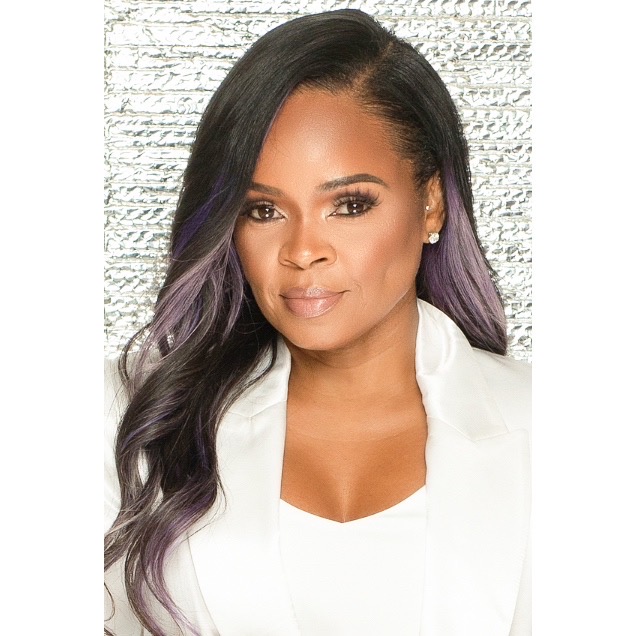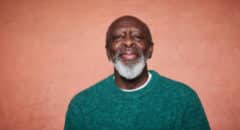
Multiple myeloma, a rare and aggressive blood cancer, disproportionately affects Black Americans—who make up only 14 percent of the U.S. population but represent 20 percent of all multiple myeloma patients, a figure expected to rise to 24 percent by 2034. Shockingly, Black patients are often diagnosed too late, doubling their risk of death compared to white patients. Kimberly Alexander, the widow of former NFL star Elijah Alexander, has transformed her personal tragedy into a powerful advocacy, highlighting the critical need for awareness, early diagnosis, and equitable healthcare for those living with multiple myeloma.
As she puts it, “I was determined to raise awareness… to make sure others wouldn’t find themselves in the same situation if I could help it.”
A Life-Changing Moment
In 2005, Elijah Alexander, an NFL linebacker who played for the Tampa Bay Buccaneers, was diagnosed with multiple myeloma at the age of 35. His diagnosis came as a complete shock. Despite persistent health issues, doctors initially attributed his symptoms to his football career. The turning point came during a trip to Costa Rica.
“He got sick on the flight, and they had to call a doctor. The doctor in Costa Rica did some blood work and told him, ‘Something is really wrong. When you get back to the States, you need to see your doctor immediately.’ So I set up all his appointments for when he returned,” Kimberly recalls.
Upon returning to the U.S., Kimberly and Elijah faced the devastating news that he had cancer—and not just any cancer, but a complex, aggressive form of blood cancer.
“We were in complete shock because, up until then, he’d seen multiple doctors who all attributed his discomfort to his football career. They’d say things like, ‘Of course, you have pain in your feet; you’ve been playing football since elementary school.’ At this point, Elijah had played in the NFL for about nine years, and had recently retired,” Kimberly shares. “He was coaching our kids’ little league team, doing all the things a retired athlete would. So we were completely shocked to hear that he had multiple myeloma—or any cancer for that matter. I remember thinking, ‘Okay, it’s cancer. They’ll cut it out, give him chemo, and he’ll beat it like so many others have.’”
However, the realization that myeloma was a blood cancer requiring a different approach changed their outlook. What followed was a battle to keep Elijah’s health stable while navigating the complexities of his treatment.
“We hadn’t heard of myeloma before. There weren’t nearly as many treatment options as there are now. With blood cancers in general, you don’t hear much about them until they impact you. Unlike some other cancers, like breast cancer, there aren’t widespread screening processes or ways to prevent it,” Kimberly adds.
The journey of caring for Elijah exposed Kimberly to the intense struggles faced by caregivers.
“It truly felt like the rug was pulled out from under us. There wasn’t much time to process things. By the time we found out Elijah had multiple myeloma, he was at the worst stage; he was already in organ failure. His kidneys were impacted, so we had to get his kidneys healthy before he could even start proper treatment,” Kimberly tells BlackDoctor.org.
Understandably, seeing how multiple myeloma impacted her family angered Kimberly.
“I really thought we were living a fairytale life. I was married to a man living out his NFL dream, we had two sons, and everything seemed perfect. Then we were sucker-punched by cancer. It made me vow to do everything I could to make sure others wouldn’t find themselves in the same situation if I could help it,” Kimberly says.
Turning Grief into Advocacy
Determined not to let Elijah’s death in 2010 be in vain, Kimberly has become a passionate advocate for health equity, especially concerning the diagnosis and treatment of myeloma within the Black community. Elijah’s story echoes the experiences of many in this demographic, where late-stage diagnoses are more common due to limited access to preventative care and awareness. Currently, Black individuals are twice as likely to develop multiple myeloma, and Black men under 50 have a 2.6 times higher risk for developing the disease than white men.
“I was determined to raise awareness, fundraise, and advocate to help find a cure for myeloma. Until that happens, I’m committed to this cause. It’s a way to keep his memory alive. And I’ve learned that, even when it feels like no one is listening, people are paying attention. I’ve had people reach out to me years later saying, ‘I remember you talking about myeloma. Now I know someone diagnosed with it, or I’ve been diagnosed with it myself.’ I’m happy to help them navigate through the diagnosis,” Kimberly shares.
Kimberly is currently partnering with Johnson & Johnson on the “That’s My Word” campaign, which is a testament to her commitment to health advocacy.
“I remember the first time I saw the campaign—I was just blown away. I thought it was beautifully done and tastefully executed. It was something that would make patients, caregivers, and even people who aren’t patients tune in and pay attention, just because of the voices they were using to talk about multiple myeloma. Now, being a part of it is such an honor for me, and it’s a big deal. I’m so proud to work alongside a lot of the people who are also part of it,” she notes.
One of the biggest challenges for patients is feeling overwhelmed by their diagnosis and the complexities of treatment. “That’s My Word” provides a space for patients and caregivers to connect, find resources, and make informed decisions about their care.
“One of the things I’ve noticed is that when some people get diagnosed, they shut down. An initiative like ‘That’s My Word’ inspires people to get involved, to make a promise to stay active. One of my biggest concerns is that people don’t take a proactive approach when facing a diagnosis. One of the worst things you can do is shut down,” Kimberly adds.
RELATED: Shanti Das: From Music Executive to Mental Health Advocate
The Importance of Conversations
Kimberly also stresses the critical role that open conversations can play in saving lives, particularly in the Black community.
“A lot of times, we’ll see people who get sick, and their family members won’t really share a lot of details. Then, by the time it’s almost too late, they start talking about it. For me, that’s frustrating because if we were a little more open and comfortable having tough, uncomfortable conversations—especially about things as important as our health—it could benefit so many people. Some may see themselves in another person’s situation and think, ‘Wait a minute, this person was having these symptoms, which sound similar to what I’m experiencing. Maybe I should mention this to my physician the next time I go in,’” she notes.
Caregiving and Community Support
Throughout her caregiving journey, Kimberly has recognized the crucial role that communities play in supporting caregivers. She recalls how friends were often unsure of how to approach her during Elijah’s illness, unsure of what to say or how to help.
“One of the things people didn’t understand when I was going through this was how important normalcy was. I remember so many people being unsure how to approach me. They didn’t know what to say, but I wanted to talk about normal things. I didn’t need every conversation to revolve around Elijah’s illness. It was consuming my life already, so I appreciated moments of escape. I encourage anyone who knows a caregiver to give them opportunities for that mental break,” she shares.
Kimberly’s advice to caregivers is to accept help—any help.
“Don’t feel guilty about needing a break, whether it’s running to Starbucks or reading a magazine. You can’t pour into your loved one if you’re running on empty. I was 32 when Elijah was diagnosed, and I didn’t even realize the term ‘caregiver’ applied to me. I thought I was just doing what I had to as his wife. But I wasn’t paying attention to my own needs, and I’ve learned since then that you have to. So now, I always tell people to accept help when it’s offered. There are so many resources now, including websites and apps that can help pull together a support network. Take full advantage of those,” she says.
Continuing the Fight for a Cure
Kimberly remains unwavering in her commitment to myeloma advocacy. Since Elijah’s diagnosis in 2005, the landscape of myeloma treatment has evolved significantly, with new therapies and resources available to patients and caregivers. She finds hope in these advancements and is determined to ensure that more families have access to the information and support they need to navigate this challenging diagnosis.
“I’m not going anywhere until there’s a cure,” she shares.
As she continues the fight, she offers one final piece of advice for those battling multiple myeloma or other health challenges: advocate for yourself.
“You have to be your best advocate. Make sure you go in with caregivers who have a notebook and aren’t afraid to ask the doctor questions. There are so many advancements being made in the myeloma space right now, so it’s important to know everything you can. Sometimes, we may even know more than the doctor, and that’s okay. It may mean that the doctor needs to refer you to a specialist who can provide the care you need. But to do all that, you have to be educated. That’s what’s most important, and it’s something I stress to anyone newly diagnosed, as well as their caregivers,” she concludes.








